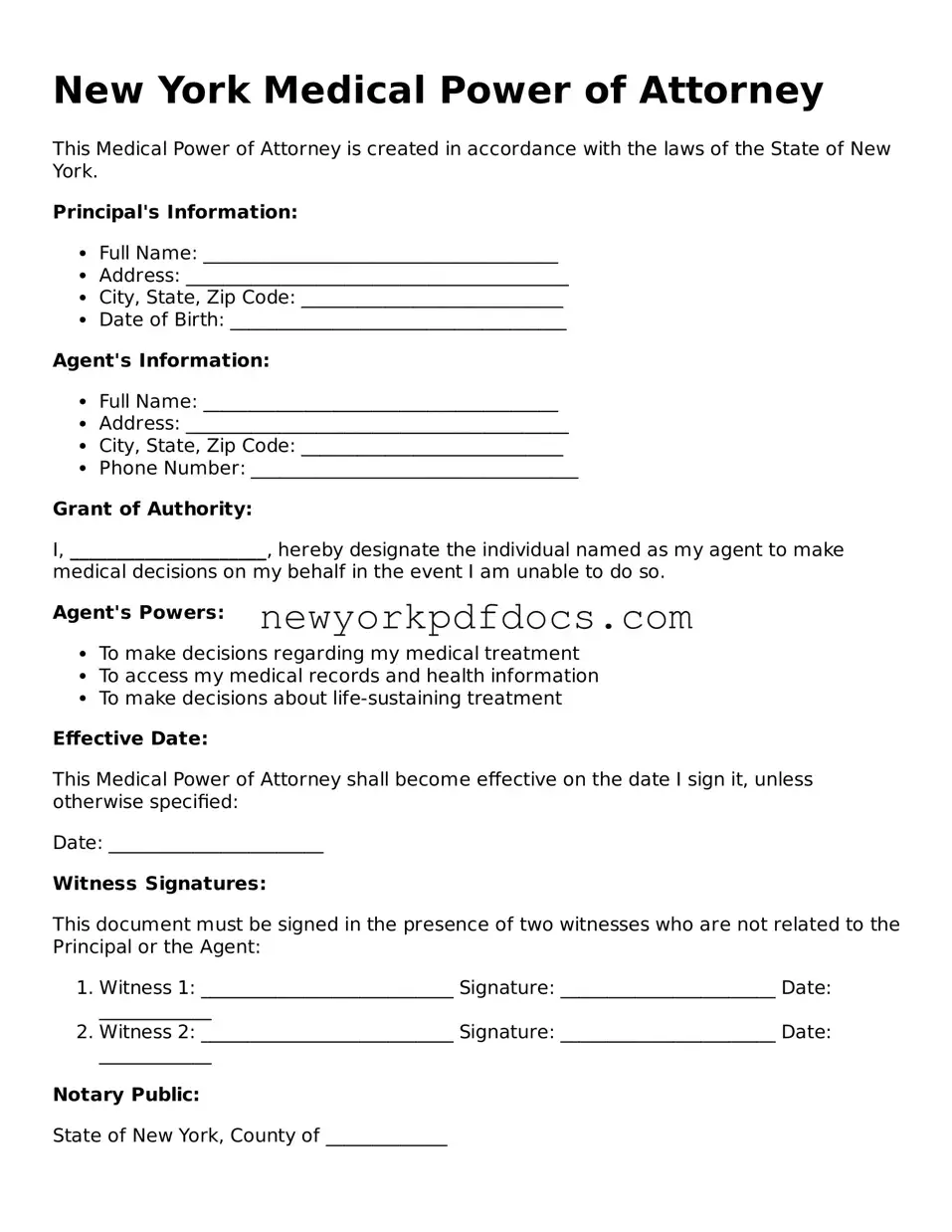Valid Medical Power of Attorney Document for New York
A New York Medical Power of Attorney form is a legal document that allows individuals to appoint someone they trust to make medical decisions on their behalf if they become unable to do so. This form is crucial for ensuring that healthcare preferences are respected and followed in times of need. Understanding how to properly use this form can provide peace of mind for both the individual and their loved ones.
Open My Document Now

Valid Medical Power of Attorney Document for New York
Open My Document Now
Your form isn’t finalized yet
Edit, save, and download Medical Power of Attorney online with ease.
Open My Document Now
or
⇓ Medical Power of Attorney PDF
